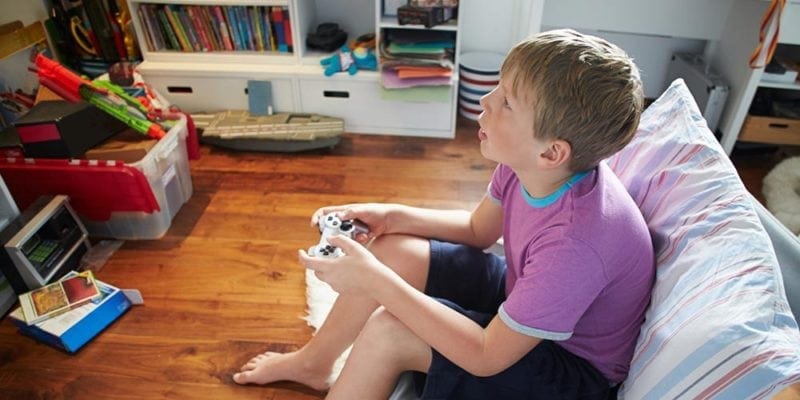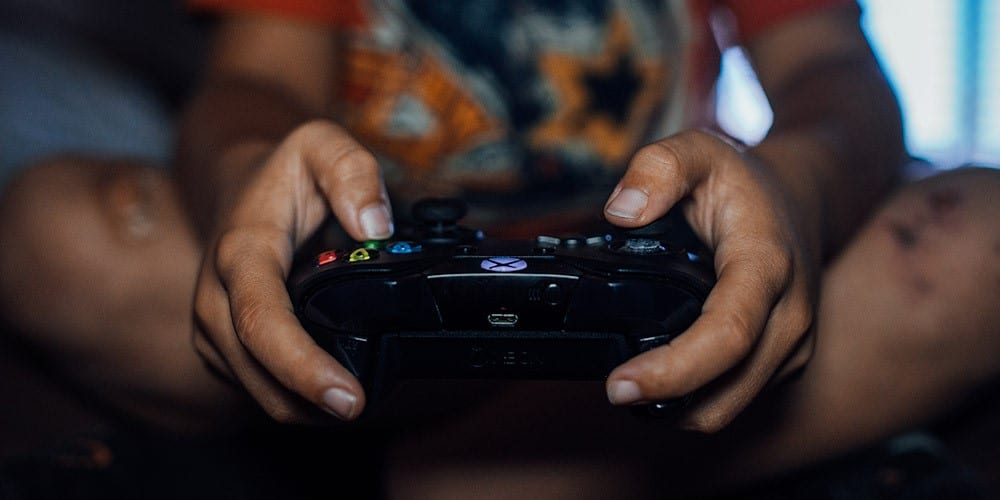As I counted up every last dollar and piece of loose change, I realized I finally had enough money. Clutching my wallet tightly, I ran into the kitchen to ask my parents to take me to the store. It was time to buy my very own Nintendo Gameboy. This was my first gaming system, and I would spend countless hours in my room, glued to that dim screen, playing Tetris, Super Mario, or some other game. Many nights, I stayed up way too late, and I wouldn’t have stopped playing had the batteries not died partway through.
Thirty years later, the systems are different, but things haven’t changed much. Left unchecked, many boys would game morning, noon, and night, staying in front of their screens for as long as the batteries (or the Wi-Fi) holds out. As parents, we need to help our boys develop healthy video game habits. Here are 6 strategies to teach our boys how to balance video games and life.
1. Don’t let him keep devices in his bedroom.
Make a rule that gaming happens in a public part of the house. Boys who have media devices in their rooms (gaming or otherwise) can play for hours uninterrupted and unmonitored. Not only do you not know how much time he is spending on a screen, but it is also far more difficult for you to know what else he might be viewing behind closed doors.
2. Make a distinction between electronic tools and electronic toys.
While circumstances may require your son to have multiple devices, teach him that gaming belongs on a gaming device. Don’t let your son download games onto his phone or access online gaming on a school computer or Chromebook. When you have games everywhere, it gets far too easy to go back to games even when you don’t intend to.
3. Spend intentional time with your son.
John Eldredge’s book Wild at Heart talks about the ways every boy is asking the same basic questions about himself that dads are uniquely placed to answer. When you are distant from your son, he may turn elsewhere, including video games, to look for the answers to his heartfelt questions. No matter what you do with him, any intentional time spent with him can help him learn to balance video games and life.
4. Have him keep track of how much time he spends gaming each day.
Print off a calendar. Ask your son to write down how much time in minutes he spends gaming each day. Once a week, sit down with him and discuss how much time he spent gaming versus how much he spent with friends, outdoors, studying, and so on. Including him in the discussion on his screen time will help him more than simply setting limits for him.
5. Take a screen-free day.
Your son may think you’re being unreasonable when you limit his time gaming. And that thought might be reinforced if he adds up the time you spend looking at screens. Having a habit of shutting down your screens once a week or once a month to spend face-to-face time with one another is a great way to teach your son healthy gaming habits.
6. Help him find other things to do.
A lot of boys identify themselves as gamers because that’s what they spend the most time doing. Help your son discover and invest in other hobbies as well, whether that’s sports, fishing, hunting, cooking, or creating. If you can help him find something else to capture his imagination, he’ll be willing to invest his time there as well.
Sound off: What are some other ways to help boys balance video games and life?
Another article with some great inspiration is 25 Things to Do With Elementary Kids While They’re Young.











Huddle up with your kids and ask, “If you designed a video game, what would it be?”